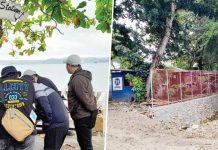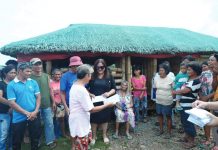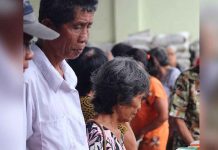DOES the Department of Health (DOH) have support mechanism for healthcare frontliners who contract COVID-19?
Eight doctors at St. Paul’s Hospital of Iloilo got infected. So, too, were five frontliners in Alimodian, Iloilo – three midwives, a medical technologist and a nurse.
These developments are worrisome. When prevention at homes and at the community level fails, patients are transferred to health facilities or hospitals, the third and final arena for treating COVID-19. The health sector as a whole, the technical experts, and health workers are working round the clock to prevent health facilities from becoming overwhelmed with COVID-19 patients at the expense of those who are also sick with non-related COVID-19 diseases.
We must point out that many health workers have become of persons under monitoring and patients under investigation for COVID-19, with some even succumbing to death as a result. As of May 13, COVID-19 already claimed the lives of 35 healthcare workers. With no cure in sight and with the disturbing shortages of equipment and supplies, more health workers are being exposed, and combined with co-morbidities and fatigue with the long and strenuous work hours, health workers are vulnerable and at high-risk of contracting the disease.
In a position paper submitted to the Inter-Agency Task Force for the Management of Emerging Infectious Diseases, nongovernment organization Social Watch Philippines listed down several proposals which calls among other things for equal hazard pay to all health workers in private and public sector and provision for meal and medical allowance and other related benefits to ease their burden. It also underscored the vulnerability of barangay health workers who are the frontliners in the community.
Indeed, barangay health workers are grossly excluded in the public narratives despite their gargantuan tasks, and just like their hospital counterparts. They have very few or no personal protective equipment provided to them and with virtually non-existent compensation packages.
Both hospitals and barangay health workers also need free transportation, including free, clean and secured sleeping accommodation.
There is also the need for health workers to have essential training to handle COVID-19 patients. What happened in Alimodian is but another reason to the importance of training our frontline health workers for handling those with cases and providing them proper work orientation.
As a whole, we are calling for social, emotional, moral, and even spiritual support to our health workers. This must be an integral part of our response to this crisis. Decent work and appropriate compensation, benefits and incentives must be provided to health workers, along with ensuring appropriate and safe working arrangements and environment for them.





